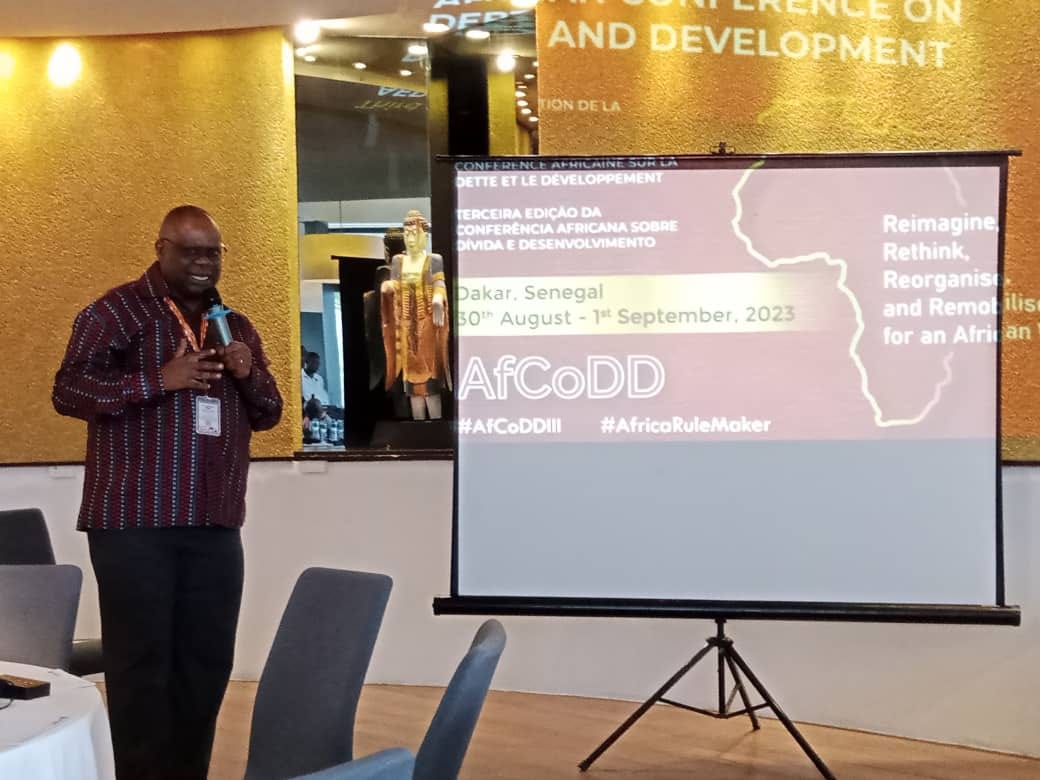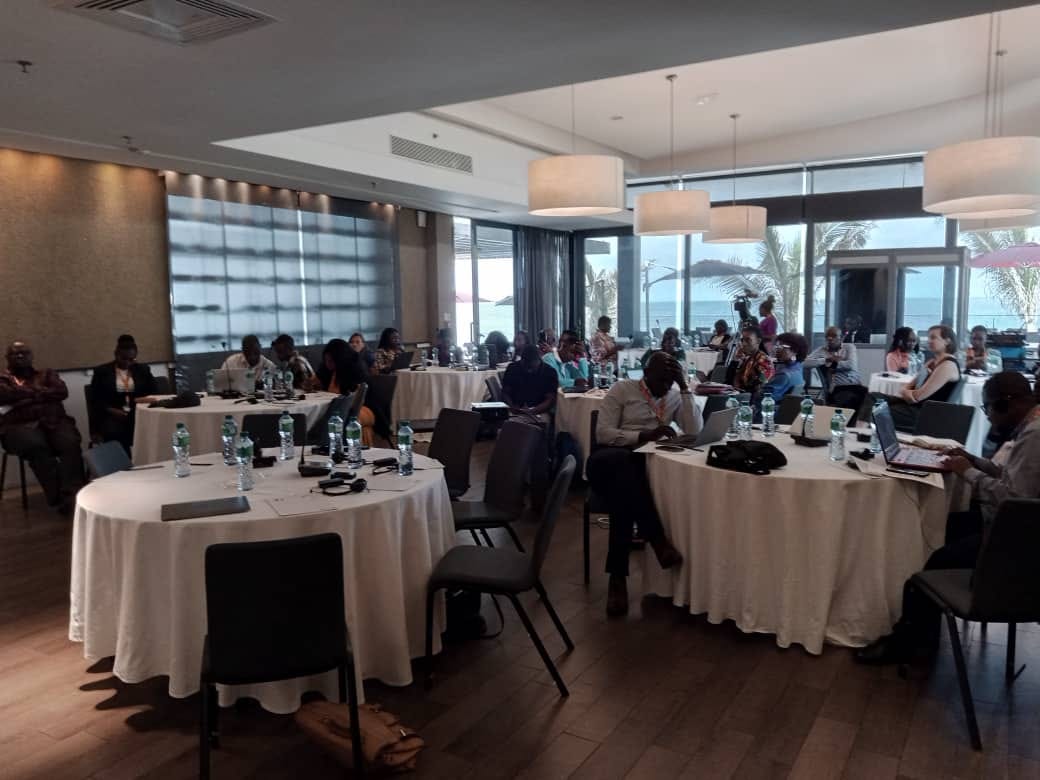Emerging Schools of Thought in Debt Discourse: A Call for African Unity
Dr. Moyo's presentation aimed to shed light on the shifting dynamics of global debt and the pressing need for African countries to unite in addressing this complex challenge.
Dakar, Senegal -Dr. Gorden Moyo, an esteemed academic and speaker at the 3rd Edition of the African Conference on Debt and Development, took the stage in Dakar to discuss the critical issue of debt justice in Africa, writes Winston Mwale.
Dr. Moyo's presentation aimed to shed light on the shifting dynamics of global debt and the pressing need for African countries to unite in addressing this complex challenge.
Dr. Moyo began by emphasising the importance of reviving intellectual discourse in Africa, noting a decline in public intellectualism over the years.
He highlighted the significance of theoretical frameworks and academic engagement, particularly in tackling complex issues like public debt.
The main thrust of Dr. Moyo's presentation revolved around the concept of "global storms" impacting Africa.
He argued that Africa is currently facing significant global shifts in power dynamics, particularly from the Global North to the Global South and East.
These shifts, according to Dr. Moyo, are influencing Africa's position in the global system and, consequently, its debt-related challenges.
One prominent shift Dr. Moyo discussed was the changing creditor landscape. Historically, African countries were indebted to multilateral institutions in the Global North.
However, there has been a noticeable increase in African countries owing significant portions of their debt to countries in the Global South, particularly China.
Dr. Moyo urged the need for in-depth research on this evolving trend, emphasizing that it's not a critique of China but rather an objective analysis of the situation.
He further highlighted the need for African scholars and advocates to critically examine resource-based loans between African governments and China.
Dr. Moyo questioned the lack of transparency in some of these deals and whether they might lead to the foreignization of African land and resources.
Climate change, another global storm, was a topic of great concern for Dr. Moyo. He stressed that climate change disproportionately affects Africa, even though the continent has contributed minimally to greenhouse gas emissions.
He expressed reservations about market-based solutions proposed to address climate issues and urged African researchers and advocates to explore alternative approaches.
Dr. Moyo called for a moratorium on certain debt repayments and structural changes in the global economy. He highlighted the negative impact of credit rating agencies during the COVID-19 pandemic, emphasizing the importance of challenging these institutions.
The Russo-Ukraine war and its repercussions on African economies were also discussed. Dr. Moyo stressed the need for a unified African voice in this global crisis.
In conclusion, Dr. Moyo proposed the concept of "African agents," signifying collective African influence and unity in negotiations with global powers.
He argued that African countries should engage with the rest of the world as a united front, rather than as individual nations, to achieve meaningful debt justice and tackle global challenges.
Dr. Gorden Moyo's presentation resonated with the audience, highlighting the urgency for Africa to navigate these global storms collectively and intelligently to ensure a just and sustainable future for the continent.





